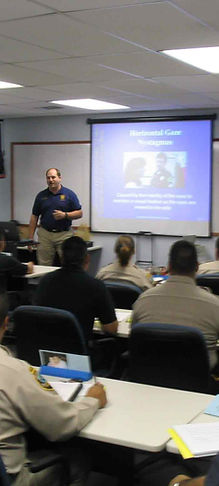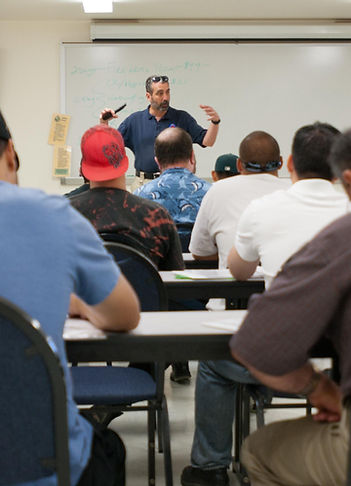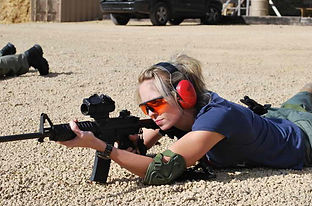TRAINING
- GUARD CARD -
INITIAL POWERS TO ARREST/WMD COURSES
are offered every Friday!
To register, Please use the form below & include your name, phone number, and which course you are interested in taking.
CAN'T MAKE A CLASS?
Initial Powers to Arrest/WMD, Mandatory, Elective, & Continuing Education Courses can be scheduled at your convenience. We make every effort to work around our student’s schedules.
CLASS TOO FAR?
We are mobile! We can come to your place of business and instruct onsite to avoid travel expenses. Contact Us For Pricing.
For more information please call (760)-646-8864 or send an
e-mail to training@ironwallsecurity.com

INITIAL COURSE (PHASE I)
I. POWER TO ARREST COURSE OUTLINE
The Powers to Arrest Course consists of eight (8) hours of training in both of the following two (2) subjects:
A. Powers to Arrest (4 hours)
Objective: To familiarize and instruct the individual on the training topics
delineated at Business and Professions Code section 7583.7, including, without limitation, legal aspects, techniques, liability, and company requirements relating to the arrest of an individual. The training will utilize the Department of Consumer Affairs’ Power to Arrest Training Manual and may include lecture, discussion, exercises and role-playing.
B. Weapons of Mass Destruction (WMD) & Terrorism Awareness (4 hours)
Objective: To familiarize and instruct the individual on the subject matter and observation skills required to identify and report precursor activities to a terrorist event, react appropriately, report the occurrence of a terrorist event, and remain safe while helping control the scene after a terrorist event. The training will utilize the Department of Consumer Affairs’ Weapons of Mass Destruction & Terrorism Awareness for Security Professionals course consisting of a Digital Video Disk (DVD), Student Workbook and Facilitator Manual.
MANDATORY CLASSES (PHASE II)
(TAKEN WITHIN THE FIRST 30 DAYS)
1. Public Relations (Community & Customer) -4 hours-
1. Recognizing Gender & Racial Harassment & Discrimination
2. Respect:
• Stereotyping
• Attitude
3. Verbal Skills / Crisis Intervention
4. Introduction to Diversity
5. Substance Abuse & Mental Illness
6. Ethics & Professionalism
• Appearance
• Command Presence • Proper Conduct
2. Observation & Documentation -4 hours-
1. Report Writing
2. English as a Second Language
3. Observation and Patrol Techniques
4. Asking Appropriate Questions
5. Observing Suspects / Suspicious Activity
3. Communication and its Significance -4 hours-
1. Internal
• Protocols Pursuant to Contract (Who to Contact & When)
• Radio / Monitors
• Other Technology
2. External
• Emergency / First Responders
• Medical Personnel
• Police / Sheriff / Other Enforcement
• City Services / Government Services
4. Liability / Legal Aspects -4 hours-
1. Personal / Contractor / Employer
2. Criminal, Civil, Administrative
3. BSIS Code & Regulations
4. Role of a Security Guard




ELECTIVE COURSES
(PHASE III)
(TAKEN WITHIN FIRST 6 MONTHS)
1. Post Orders & Assignments -4 Hours Maximum-
1. Site Specific Training
2. Equipment
• Monitoring
• Communication
• Alarms
• Elevators, Etc.
3. Emergency Response Issues
4. Liability Implications
5. Lost / Found Articles
2. Access Control -2 Hrs. Maximum-
1. Identification Procedures
2. Electronic Use/CCTV
3. Non-electronic procedures
3. Handling Difficult People -4 Hrs. Maximum-
1. Communications
2. Conflict Management
3. Speaking Constructively
4. Valuing Diversity
5. Negotiating
6. Verbal Diffusion
4. Crowd Control -4 Hrs. Maximum-
1. Controlling Boisterous Celebrations
2. Handling Disputes
3. Confronting Conflicts Constructively
4. Planning for Civil Disobedience / Disturbances
5. Labor Actions, Disputes, Workplace Stoppages
5. Parking & Traffic Control -2 Hours Maximum
1. Parking & Traffic Control
2. Job Locations and Conditions
3. Using Traffic Control Devices
4. Traffic Control Violations
5. Dangerous Goods and Hazards


